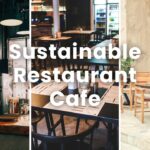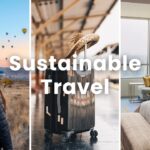Choosing sustainable products is hard. I often get lost going through many products and services, looking for signs that I am making a right choice. When it comes to sustainability, there is no end to our research, making sure that we are not being greenwashed.
I wish that there are clear signs that a company, a product or a service is sustainable and eco-friendly. Most of the time, things are little more complex than that. Some company focuses on one area of sustainability, like reducing carbon footprint, while other company focuses on other areas, such as reducing waste.
I realize that all I can do is to be transparent about the products or the services that I am purchasing. That’s why I came up with this checklist of sustainability. If I use this list, I can have a clear idea of what companies are working on for the sustainable future.
Sustainability Checklist
Environment & Climate
- Carbon Footprint & Emissions: Carbon emissions are measured and disclosed. Reduction targets in place with ongoing actions (e.g. energy transition).
- Renewable Energy & Energy Efficiency: Renewable energy is used and energy-saving measures are implemented. Tracked, measured, and improved regularly.
- Water Use & Pollution Prevention: Water use is monitored and reduced. Pollution from operations is controlled. Tracked, measured, and improved.
- Waste & Recycling: Strong policies to reduce waste across operations. Recycling and composting programs in place. Food/textile waste also considered.
- Sustainable Materials: Uses raw materials that are certified, deforestation-free, or low impact. Local or recycled materials prioritized.
- Chemical Use & Microplastics: No hazardous chemicals or harmful microplastics used. Controls in place to reduce environmental and health risks.
- Biodiversity & Land Use: Evaluates and limits negative impact on biodiversity and ecosystems from sourcing and operations. The company supports the protection of biodiversity and natural areas.
Workers & Communities
- Fair Work & Wages: Employees receive fair pay, safe working conditions, and reasonable hours and benefits.
- Labor Rights & Protections: No child or forced labor. Policies protect against discrimination, harassment, and unsafe conditions across all operations. Proper safety training and equipment provided. Health and wellbeing protected at work.
- Freedom of Association: Workers are free to organize, join unions, or choose representation without interference.
- Benefits & Wellbeing: Workers have access to healthcare, paid leave, retirement plans, and other key benefits.
- Diversity, Equity & Inclusion (DEI): DEI is supported across hiring, leadership, culture, and reporting.
- Support for Local Businesses: Local sourcing and partnerships are prioritized to strengthen local economies.
- Marginalized Communities: Business engages with and supports underserved communities through jobs, partnerships, or investment.
- Accessibility & Inclusion: Services are accessible and inclusive for people of all ages, abilities, and backgrounds.
- Cultural Respect & Preservation: Local culture and heritage are actively respected and preserved.
- Authentic Local Experiences: Local traditions and knowledge are integrated into the experience in a respectful way.
Product Design & Lifecycle
- Durability & Longevity: Products are designed to last and resist wear or damage.
- Repairability & Modularity: Products can be repaired, upgraded, or have parts replaced easily.
- End-of-Life Design: Products are recyclable, compostable, or biodegradable. Lifecycle Assessment (LCA) has been conducted to understand the product’s environmental impact.
- Circular Economy: Strategies like reuse, refurbishment, or product take-back are in place. Programs in place to return, upcycle, or recycle products.
- Toxic Substances: Products do not contain harmful or hazardous chemicals.
- Minimal & Low-Impact Packaging: Packaging is kept minimal and designed to reduce waste. Packaging is recyclable, reusable, or compostable.
- Take-Back/Refill Options: Offers systems for returning, refilling, or reusing packaging.
- Microplastics Control: Measures are in place to reduce microfibre and microplastics release.
- Animal Welfare: Animal welfare is considered in sourcing and production methods.
- Overproduction Management: Overproduction and unsold inventory are responsibly managed.
Supply Chain & Sourcing
- Sustainable Sourcing: Raw materials are sourced responsibly and ethically. Suppliers are audited for environmental and labor standards. Ethical sourcing is verified.
- Recycled or Renewable Materials: Uses recycled, upcycled, or renewable inputs where possible.
- Traceability: Material sourcing is documented and traceable for transparency. Materials and suppliers can be traced, using tools like blockchain or QR systems.
- Conflict-Free Materials: Materials are conflict-free or sourced with clear ethical safeguards.
- Low-Impact & Local Materials: Prioritizes local or low-impact materials to reduce footprint. Local, low-impact, and ethical sourcing is prioritized. Suppliers are selected based on sustainability standards.
Governance & Ethics
- Sustainability Governance: A clear structure is in place to manage sustainability (e.g., leadership responsibility).
- Ethical Business Conduct: Anti-corruption, fair tax practices, and high ethical standards are defined and followed.
- Transparency & Reporting: ESG and sustainability goals are tracked and reported publicly. Performance is clear and accessible.
- Third-Party Verification: Claims are backed by certifications or independent audits to ensure trust and credibility.
- Grievance & Whistleblower Systems: Safe, confidential channels exist for reporting violations or concerns.
- Visitor Education: Visitors are educated about environmental protection and responsible behavior.
- Visitor Management: Visitor flows are managed to avoid overcrowding and preserve local sites.
Innovation & Improvement
- Sustainable Innovation: The company invests in new sustainable technologies and stays current with best practices.
- Goal Setting & KPIs: Clear, measurable sustainability goals and KPIs are set and reviewed regularly.
- Regulatory Compliance: The company meets or exceeds all relevant sustainability laws and standards.
- Sustainability Education: Customers or clients are educated or empowered to make sustainable choices through the service.
Certification & Recognition
General Sustainability
- B Corp Certification — For businesses meeting high standards of social and environmental performance.
- EU Ecolabel — For products and services with reduced environmental impact throughout their lifecycle (European Commission)
- EcoLabel — Focuses on life cycle assessment and environmental impact reduction.
- Cradle to Cradle Certified® — For products evaluated for material health, recyclability, and social fairness.
- Green Seal — For cleaning, personal care, and other products meeting rigorous health and environmental standards.
- ECOLOGO — Multi-attribute, life cycle–based certification for products and services.
- ISO 14001 — Environmental management systems for organizations.
Ethical and Social Responsibility
- Fairtrade International — For food, drink, apparel, and other products, ensuring fair wages and safe working conditions.
- Rainforest Alliance Certified™ — For agricultural products and tourism businesses; focuses on environmental, social, and economic sustainability.
- Fair Labor Association (FLA) — For companies protecting workers’ rights in agriculture and manufacturing.
- Certified Compliance & Ethics Professional (CCEP) — For organizations and professionals in compliance and ethics.
Textiles and Apparel
- Global Organic Textile Standard (GOTS) — For organic fibers and textiles, ensuring strict environmental and social criteria.
- OEKO-TEX® — For textiles tested for harmful substances and produced in environmentally friendly facilities.
Food and Agriculture
- USDA Organic — For organic food and agricultural products (not listed above but widely recognized).
- PEFC — For sustainable forest management and wood-based products.
- FSC® (Forest Stewardship Council) — For wood and paper products from responsibly managed forests.
Electronics
- TCO Certified — For IT products meeting environmental and social responsibility criteria.
- EPEAT — For electronics with reduced environmental impact.
Packaging and Materials
- Global Recycled Standard (GRS) — For products with recycled content.
- Compostability Mark (European Bioplastics) — For compostable bioplastic products.
Personal Care and Household
- EWG Verified™ — For personal care and cleaning products free from harmful ingredients.
- Leaping Bunny — For cruelty-free cosmetics and household products.
- Certified Vegan — For vegan and cruelty-free products.
Eco-Labels and Certification
- Blue Angel (Germany) — For environmentally friendly products and services.
- Nordic Swan Ecolabel (Nordic countries) — For products meeting strict environmental and climate criteria.
- Eco Mark (Japan) — For products with a lower environmental impact throughout their lifecycle.
- Singapore Green Label Scheme (SGLS) — For environmentally preferable products in Singapore.
- ISCC (International Sustainability and Carbon Certification) — For sustainable feedstocks, biomass, and circular materials.
- Butterfly Mark (Positive Luxury) — For luxury brands demonstrating positive social and environmental impact.
- Energy Star — For energy-efficient products and buildings.
Sustainable Tourism
- Global Sustainable Tourism Council (GSTC) Certification
Sets global standards for sustainable tourism, covering management, socio-economic, cultural, and environmental impacts. GSTC accredits other certifying bodies for hotels, tour operators, and destinations. - EarthCheck Certification
Focuses on environmental management, benchmarking, and third-party auditing for tourism organizations worldwide. Recognized for scientific rigor in sustainability assessment. - Biosphere Responsible Tourism
Aligns tourism businesses with the UN Sustainable Development Goals, supported by UNESCO and the World Tourism Organization. Provides tools for continuous sustainability improvement. - Green Globe Certification
Offers a structured assessment of sustainability performance for travel and tourism businesses, based on international standards and compliance indicators. - Rainforest Alliance Sustainable Tourism Certification
Focuses on environmental, social, and economic sustainability for tourism businesses, especially in sensitive ecosystems. - Green Key
International eco-label for hotels and tourism establishments, emphasizing environmental management and corporate social responsibility. - Travelife
Certification for tour operators, travel agencies, and accommodations, covering environmental, social, and economic aspects of sustainability. - Fair Trade Tourism
Promotes ethical and responsible tourism, focusing on fair wages, community engagement, and cultural preservation. - Ecotourism Australia ECO Certification
Recognizes genuine nature and ecotourism operators with three levels: Nature Tourism, Ecotourism, and Advanced Ecotourism. - Sustainable Tourism Certification (Ecotourism Australia)
For all tourism businesses, certifying minimized negative impacts and maximized benefits for environment, communities, and culture. Includes standard and advanced levels. - QualityCoast
Certification for coastal and marine tourism destinations, focusing on environmental and cultural sustainability. - TourCert
Provides certification for sustainability in the tourism sector, promoting ethical business practices and social responsibility.








